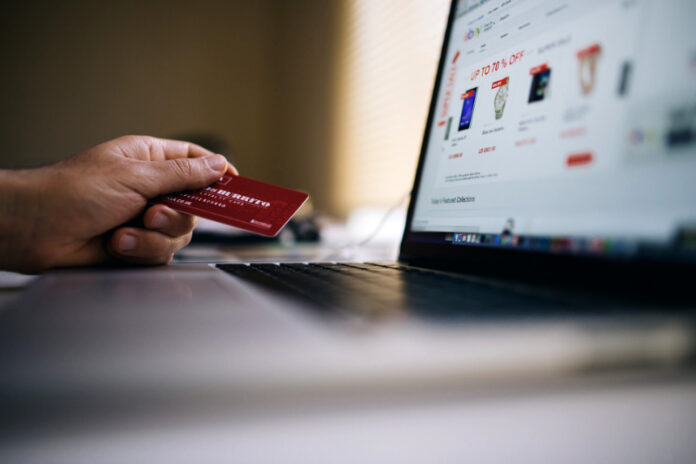The continuous boom of e-commerce is a double-edged sword. The growth, for instance, creates opportunities for all kinds of businesses in Singapore. However, it has also resulted in more cyberthreats like phishing scams and ransomware.
Various payment platforms and retailers have thus tightened their security protocols, which is a plus for consumer and merchant safety, but unfortunately led to missed sales opportunities.
Forter, a SaaS company providing fraud prevention technology to online retailers and marketplaces, aims to bridge this gap between retail and cybersecurity.
Frontier Enterprise spoke with Michael Reitblat, CEO and Co-Founder of Forter, to verify issues surrounding fraud detection, and how their technology can help retailers earn more.
“Last year US$32 billion was stolen from online retailers globally, which is a sizable number, but US$443 billion of transactions never happened, because someone decided that they’re too risky, and falsely declined the good consumer. We know all the declined transactions. If you want to buy something, and the merchant says, ‘I think it’s too risky,’ and declines (the transaction), it’s registered,” he said.
Intel background
Before Reitblat co-founded Forter, he was a Military Intelligence Officer with the Israeli Intelligence Corps – Cyber Command.
“A lot of what (I) have learned there is, how do you detect (threats)? You constantly need to make decisions, or evaluate threats, (wherein) you don’t ever have all the information, and you need to make close-to-perfect decisions with a very partial picture. The way we were trained to think there, (was) how do you prioritise, because you can’t detain everyone. So that balance taught us a lot of things,” he recalled.
Reitblat also worked in various roles for cybersecurity companies, and co-founded Fraud Sciences, a start-up which was acquired and later sold by PayPal.
Looking back now, the Forter CEO wished they didn’t sell Fraud Sciences.
“We really realised that e-commerce is bigger, that there’s an even bigger opportunity for us — and it is global growth. The more global it becomes, from one end, the more susceptible businesses are to global fraud. But on the other end, it’s even more important for them to get this right, otherwise, they’re going to be excluding entire markets or countries,” Reitblat remarked.
Payment challenges

Knowing all these challenges and opportunities, Reitblat co-founded Forter in 2013, along with his pal Liron Damri.
“We had two underlying assumptions. First, e-commerce is going to be really big, and you have to build a system that’s fully automated, and not relying on people,” the CEO said.
“Second, If you authenticate the buyer, not the card, or the transaction, or the shipping address, or whatever, I know who you are, (that you are) the one doing the action,” he added.
Forter, therefore, has been working with retailers by authenticating consumers, telling merchants that they can trust people regardless of their payment method.
“What’s really interesting, specifically around Southeast Asia, is that credit cards (are dominant) in Singapore, but outside of Singapore, they’re not very dominant,” Reitblat observed. “People are using different types of payment methods that, for a merchant, you want to make sure that you support everything. For consumers, you want to have the freedom of choice and not to say, ‘Oh, I have to use PayPal or credit card for it to work.’ So, we need to cover all types of fraud in all regions.”
As the company gained more clients, they had access to a larger pool of data. But how exactly did they maintain data privacy with such sensitive information?
“We get data from our customers, and we never share data back. We use it to make decisions for the benefit of all of our customers. The more customers we have, the more data we have, the better the decisions are, but we never tell one of our customers, ‘Hey, we saw this data from your competitor, and that’s why it’s okay.’ You just tell them, ‘That’s okay,’ and that maintains both the integrity of our data and the privacy of the consumers,” Reitblat revealed.
“Because if you’re buying from one company, you don’t want the other company to know that you’ve been buying there. The fact that we never share data is a big benefit,” he continued.
The CEO further explained that they do not facilitate payments, nor make credit decisions, but rather enable trust between buyers and sellers.
“We are (payment) agnostic. All the customers that we work with may use Visa, MasterCard, AmEx, PayPal, Alipay, or GrabPay,” he said.
When it comes to fraud prevention, one common data point is whether or not the buyer is using VPN. In reality, the situation is much more complex, Reitblat emphasised.
“Usually, people assume (that) if you’re a fraudster, you want to hide your (identity), and you want to use a VPN, or you want to seem like, let’s say you’re connecting from Singapore even though you’re now in Vietnam, because people trust Singaporean IP addresses more. But I use a VPN because it’s my work computer. The fact that I connect from a hotel, which is a risky address, and I use a VPN, which is my work VPN, and I use a foreign credit card— it’s actually a good combination,” he said.
“If you’re only looking at each of them individually, you’ll think it’s the worst transaction ever. Context, and not individual data points, is essentially a core of our kind of IT here. A lot of the time, people focus either on the algorithms or the data, but it’s actually the combination of the two,” the CEO added.
Improving the e-commerce space
Looking ahead, Forter is committed to further developing the e-commerce space, especially in the payments aspect.
“When we started, there was no flash drive. The fact that you can now run clusters of memory across multiple machines, like what AWS and the rest of that cloud computing revolution caused, we can hold a petabyte worth of data in memory and make that calculation, which was unimaginable when we started. That improves the accuracy of our product,” Reitblat said.
The CEO also expressed optimism with how fast technology develops, in countries like Japan, for example, where retailers made use of RFID tags as early as six years ago.
“When we started, we knew that we had to be fully automated. At the time, it was impossible. Luckily, technology advanced. You have markets where they adopt amazing technology on one end of retail, but don’t adopt technologies that are available for 20 years on another end. And now it’s all coming together. So, it’s way more about deployment than it is about further innovation. Sometimes it seems that people are innovating just for the sake of it,” he concluded.
















